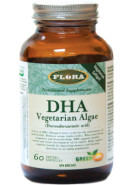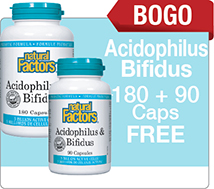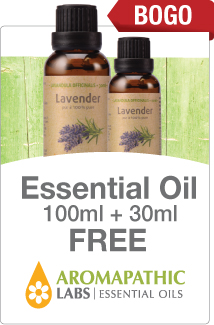DHA
Uncovering The Benefits of DHA: An Important Essential Fatty Acid
Did you know that essential fatty acids (EFAs) first emerged in the early 20th century when researchers observed that certain fats were necessary for health but could not be synthesized (or not synthesized in adequate quantity) by the human body? The term "essential fatty acids" was thus coined to describe these vital nutrients, which must be obtained through diet and/or supplementation. Read more >-
 RENEWABLY SOURCED DHA Flora's DHA Flax Oil is a vegetarian source of unrefined DHA, blended with organic Flora Flax Oil to provide you with a DHA-rich oil from tank-grown algae. DHA, or Docosahexaenoic Acid, is an omega-3 fatty acid that is essential for the proper functioning of our brains as adults, and for the development of our ne...RENEWABLY SOURCED DHA Flora's DHA Flax Oil is a vegetarian source of unrefined DHA, blended with organic Flora Flax Oil to provide you with a DHA-rich oil from tank-grown algae. DHA, or Docosahexaenoic Acid, is an omega-3 fatty acid that is essential for the proper functioning of our brains as adults, and for the development of our nervous system during the first six months of life. This makes DHA supplementation extremely important for pregnant and nursing women. Because Flora DHA Flax Oil uses only cultivated algae instead of fish oil, it is naturally free of ocean-borne contaminants like PCBs, dioxins and mercury. As an added environmental benefit, cultivated algae are a completely renewable resource that does not have a detrimental impact on the depletion of fisheries anywhere in the world! [LIQUID]+ Earn 15 Reward Points
RENEWABLY SOURCED DHA Flora's DHA Flax Oil is a vegetarian source of unrefined DHA, blended with organic Flora Flax Oil to provide you with a DHA-rich oil from tank-grown algae. DHA, or Docosahexaenoic Acid, is an omega-3 fatty acid that is essential for the proper functioning of our brains as adults, and for the development of our ne...RENEWABLY SOURCED DHA Flora's DHA Flax Oil is a vegetarian source of unrefined DHA, blended with organic Flora Flax Oil to provide you with a DHA-rich oil from tank-grown algae. DHA, or Docosahexaenoic Acid, is an omega-3 fatty acid that is essential for the proper functioning of our brains as adults, and for the development of our nervous system during the first six months of life. This makes DHA supplementation extremely important for pregnant and nursing women. Because Flora DHA Flax Oil uses only cultivated algae instead of fish oil, it is naturally free of ocean-borne contaminants like PCBs, dioxins and mercury. As an added environmental benefit, cultivated algae are a completely renewable resource that does not have a detrimental impact on the depletion of fisheries anywhere in the world! [LIQUID]+ Earn 15 Reward PointsSale: $15.49
Reg.: $19.19 (Save $3.70)
In Stock -
 FLORA DHA VEGETARIAN ALGAE Flora DHA Vegetarian Algae Dietary Supplement is unrefined and derived from cultivated algae, not fish. It is free of ocean-borne contaminants and concerns associated with global overfishing, extensive filtration, molecular distillation and other types of processing. DHA Vegetarian Algae supports heart healt...FLORA DHA VEGETARIAN ALGAE Flora DHA Vegetarian Algae Dietary Supplement is unrefined and derived from cultivated algae, not fish. It is free of ocean-borne contaminants and concerns associated with global overfishing, extensive filtration, molecular distillation and other types of processing. DHA Vegetarian Algae supports heart health in adults, as well as brain function, and eye and joint health. Flora's DHA Vegetarian Algae is also great for women who are nursing or pregnant. DHA Vegetarian Algae increases energy and endurance, and is beneficial for skin, nails and hair. [VEGGIE SOFTGELS]+ Earn 29 Reward Points
FLORA DHA VEGETARIAN ALGAE Flora DHA Vegetarian Algae Dietary Supplement is unrefined and derived from cultivated algae, not fish. It is free of ocean-borne contaminants and concerns associated with global overfishing, extensive filtration, molecular distillation and other types of processing. DHA Vegetarian Algae supports heart healt...FLORA DHA VEGETARIAN ALGAE Flora DHA Vegetarian Algae Dietary Supplement is unrefined and derived from cultivated algae, not fish. It is free of ocean-borne contaminants and concerns associated with global overfishing, extensive filtration, molecular distillation and other types of processing. DHA Vegetarian Algae supports heart health in adults, as well as brain function, and eye and joint health. Flora's DHA Vegetarian Algae is also great for women who are nursing or pregnant. DHA Vegetarian Algae increases energy and endurance, and is beneficial for skin, nails and hair. [VEGGIE SOFTGELS]+ Earn 29 Reward PointsSale: $29.99
Reg.: $37.99 (Save $8.00)
In Stock
Essential Fatty Acids & DHA Benefits
Did you know that essential fatty acids (EFAs) first emerged in the early 20th century when researchers observed that certain fats were necessary for health but could not be synthesized (or not synthesized in adequate quantity) by the human body? The term "essential fatty acids" was thus coined to describe these vital nutrients, which must be obtained through diet and/or supplementation. This discovery revolutionized our understanding of dietary fats and their impact on human health. This is significant because, until this time, fats were all lumped together and deemed "unhealthy." Let's explore the range of healthy fats, including DHA benefits.
Types of Essential Fatty Acids
There are two main categories of EFAs: omega-3 and omega-6 fatty acids. Both types play critical roles in a range of physiological functions, including cell membrane integrity, hormone production, and inflammation regulation.
Omega-3 Fatty Acids – These include alpha-linolenic acid (ALA), eicosapentaenoic acid (EPA), and docosahexaenoic acid (DHA). ALA is primarily found in plant sources such as flaxseeds, chia seeds, and walnuts, while EPA and DHA are predominantly found in fatty fish like salmon, mackerel, and sardines.
Omega-6 Fatty Acids – The primary omega-6 fatty acid is linoleic acid (LA), which is abundant in vegetable oils like soybean, corn, and sunflower oil. Another omega-6 fatty acid, gamma-linolenic acid (GLA), is found in certain plant-based oils and supplements.
The Significance & Benefits of DHA
Among omega-3 fatty acids, the main benefits of DHA are due to its abundance in the brain and retinal tissue. Indeed, DHA constitutes a significant portion of the brain's structural lipids, playing a crucial role in cognitive function, memory, and neurotransmitter signalling. Just as importantly, DHA is essential for developing and maintaining the central nervous system, perhaps most notably during infancy and childhood, but in reality, across the lifespan.
Key Research On DHA And Benefits For Wellness
In the last couple of decades, the number of studies on EFAs, and omega-3s in particular, has multiplied, with research on everything from cardiovascular health to cognitive function, to mood regulation and beyond. Notably, research has conclusively shown that DHA is an integral component of cell membranes and plays a crucial role in several areas of human health. These include:
- Brain Function: DHA is a key component of brain tissue and has been shown to affect cognitive function and neurological health. Studies suggest that adequate DHA intake during pregnancy and early childhood supports brain development and improves cognitive function in infants and children.
- Eye Health: DHA is a major structural component of the retina, the light-sensitive tissue at the back of the eye. Research has demonstrated that DHA helps protect against age-related macular degeneration (AMD) and other eye conditions, thus reducing the risk of vision loss.
- Heart Health: Omega-3 fatty acids, including DHA, have been linked to a reduced risk of heart disease. Indeed, an adequate consumption of DHA helps lower triglyceride levels, reduce blood pressure, and decrease the risk of abnormal heart rhythms. It also boasts anti-inflammatory effects that benefit cardiovascular health.
- Inflammation: DHA has anti-inflammatory properties, which help reduce inflammation throughout the body. As a reminder, chronic inflammation is associated with a range of health problems, including heart disease, diabetes, and autoimmune disorders.
- Joint Health: DHA supplementation has been shown to reduce joint pain and stiffness associated with conditions such as rheumatoid arthritis. Its anti-inflammatory properties help alleviate symptoms and improve overall joint function.
- Mood and Mental Health: Studies have demonstrated that DHA supplementation can positively affect mood and mental health. Indeed, omega-3 fatty acids, including DHA, are currently being investigated as potential complementary treatments for depression, anxiety, and other mood disorders.
- Pregnancy & Fetal/Infant Development: DHA is particularly important during pregnancy and breastfeeding to ensure the optimal development of the baby's brain and eyes. Maternal supplementation with DHA is thus critical and has been associated with improved cognitive function in offspring.
- Skin Health: DHA is essential for maintaining the integrity and function of the skin barrier. Adequate intake of omega-3 fatty acids, including DHA, helps improve skin hydration, reduces inflammation, and protects against conditions such as eczema and psoriasis.
DHA Supplement Varieties
DHA supplements are available in various forms, including liquid, capsules, veggie caps, softgels, veggie softgels, chewable softgels, chews, gummies, and powder.
Once you’ve decided on your preferred delivery format, you’ll also need to choose from supplements available in triglyceride form, which mimics the natural structure found in fish, or those in ethyl ester form, a concentrated version commonly of omega-3 supplements. The triglyceride form is often considered more bioavailable, while the ethyl ester form offers higher concentrations per dose.
The potency of DHA supplements varies widely, ranging from 200 mg to 1000 mg per serving. The recommended daily dose typically falls within the range of 250 mg to 1000 mg, depending on individual health needs and dietary intake. However, higher doses may be warranted in certain instances. If you're new to omega-3s, ask the knowledgeable staff at your favourite health food store or online supplement retailer for advice on what product may be best for you.
Final Insights & Potential Side Effects
While most people have no side effects with DHA supplementation, more sensitive individuals may experience mild gastrointestinal issues such as nausea, diarrhea, or indigestion. Additionally, DHA supplements can interact with certain medications, most notably blood thinners, so it's important to consult your healthcare provider before starting supplementation if you're taking any prescription medications. In addition, those with seafood allergies should opt for DHA supplements derived from algae rather than fish sources as a precaution.
Back to Top ↑





















